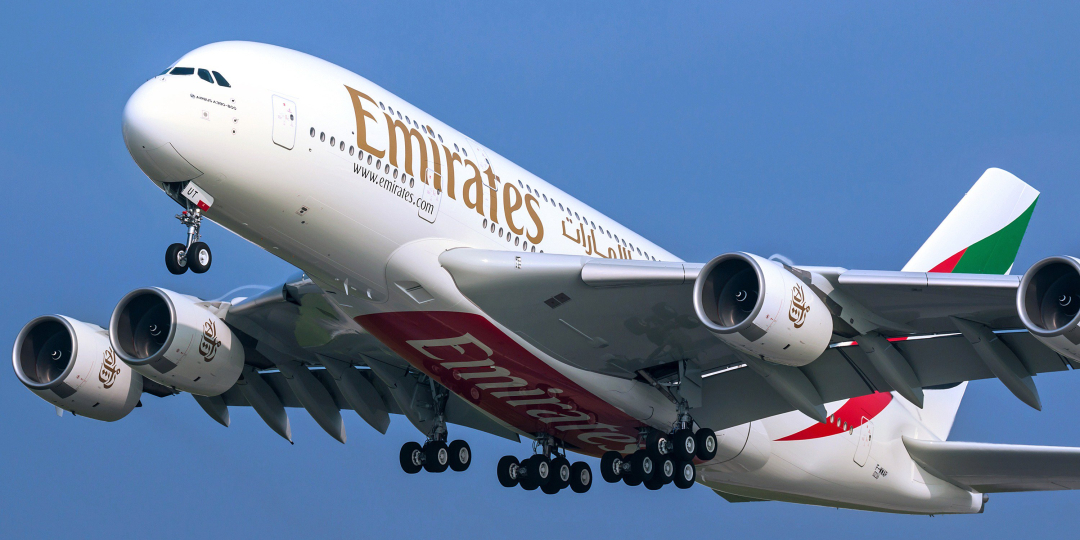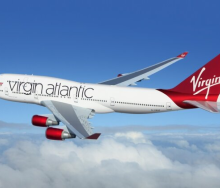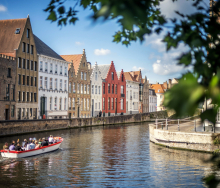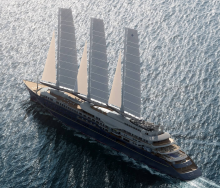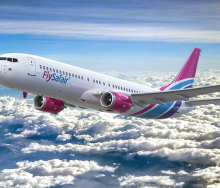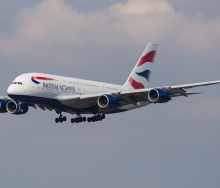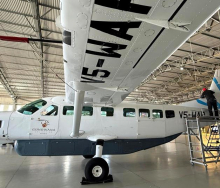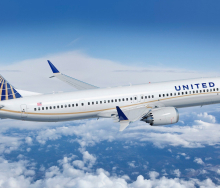Before the start of the pandemic it seemed that the A380 superjumbo was rapidly becoming the aircraft of a past era, as major airlines sold off, decommissioned or mothballed their A380s.
No one could have predicted how much pent-up demand for travel there would be in 2022 and now, the A380, capable of carrying up to 853 passengers, is being touted as a possible solution to the world’s airline seat capacity shortages. However, at present, only Emirates is fully committed to bringing the double-decker aircraft back to Africa.
Talk of the A380’s comeback has grown louder in recent weeks, especially since FlightRadar revealed that more than half the world’s fleet had returned to service (see here).
Analysts seem convinced that more airlines will bring their A380 fleet out of long-haul storage because of the steep rise in passenger traffic this year since COVID-19 restrictions have eased.
Linden Birns, aviation expert and MD of Plane Talking said: “There is plenty of demand for travel, though probably not as much in South Africa as at the other end of the route where airport capacity-handling is seriously constrained due to (the after-effects of) COVID-19.”
Emirates has already brought its flagship A380 back to South Africa with daily flights to Johannesburg from Dubai. A second daily A380 flight was added from July 1.
Showing its faith in the longevity of the aircraft’s usefulness, Emirates has decided to roll out its new Premium Economy cabin on 67 of its A380s (as well as 53 more Boeing 777s).
Emirates Regional Manager, Afzal Parambil, told Travel News: “By the end of the programme, Emirates will have 126 aircraft fitted out with Premium Economy cabins, as well as our latest interiors across other cabins.”
The carrier added twice-daily A380 flights to Mauritius from July 1 and Parambil said by the end of 2022 there would be close to 90 A380s in service. “A380s are also operating in various markets across Europe, the Americas and the Middle East and Australia.”
Emirates has returned to almost 130 passenger destinations using more than 60 A380s (and 140 Boeing 777s) since the closing days of the COVID-19 pandemic. “The reopening of borders and a wave of travel restrictions easing in countries across our network have helped accelerate what was already there – tremendous pent-up demand for air travel,” said Parambil.
“We constantly monitor and evaluate demand for our services, and we adjust capacity based on market needs.” Currently, the airline serves South Africa with 26 weekly flights, including double-daily to Johannesburg, daily services to Cape Town, and five weekly flights to Durban.
Another fan of the superjumbo, Singapore Airlines, has restarted A380 flights from Singapore to destinations like New York, but not to South Africa.
Among the other big A380 operators, Qantas, Air France, and Qatar have all ruled out the possibility of A380 flights to South Africa in the near term.
Air France retired its A380 fleet in 2020 (mid-pandemic).
Qantas Regional Manager, Michi Messner, told Travel News there were no plans to bring an A380 to SA.
Qatar Airways operates A380s on its London and Paris routes but not to SA. SA representatives said the entire fleet was back in service but that there were no concrete plans to position an A380 on South African routes.
Asked if it would use an A380 on the SA routes, either now or later, British Airways told Travel News it had nothing to report at this stage.
At the end of June, Lufthansa announced it would reactivate its A380 fleet from the (European) summer 2023. It based its decision on “the steep rise in customer demand and the delayed delivery of ordered aircraft”. It said it had eight A380s available for the time being (Lufthansa placed 14 A380s in ‘deep storage’, of which six have been sold).
Lufthansa has previously told Travel News it could not speculate if or where its A380s would be deployed, however if it uses one on the Johannesburg route, it wouldn’t be the first time. Lufthansa’s A380 seats 509 passengers, surely a welcome capacity on any long-haul route out of South Africa while the market is suffering severe seat shortages. The carrier currently operates a mix of Boeing 747-8 and Airbus A340-300s to South Africa.
Birns said it would come down to economics whether Lufthansa, or any carrier for that matter, tried to make an A380 work on an African route. “It’s all about economics. There are those airlines that love them, and those that do, love them dearly.”
Airbus no longer produces the iconic A380.

